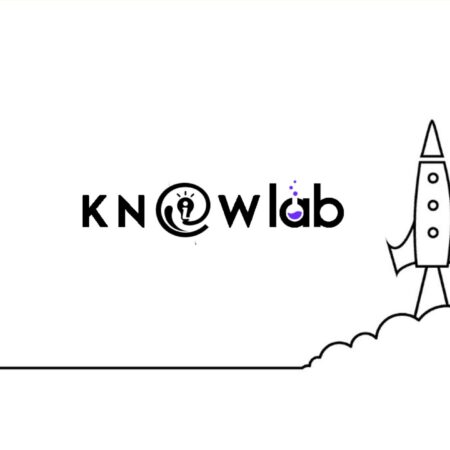 In Buddhism, there are a set of realisations or truths, called the Four Noble Truths, that one must understand to attain Buddhahood (enlightenment).
In Buddhism, there are a set of realisations or truths, called the Four Noble Truths, that one must understand to attain Buddhahood (enlightenment).
I don’t claim to be enlightened whatsoever, but recently I have been delving into the world of Buddhist philosophy, traditions and literature and have had a rather pleasant epiphany.
The first noble truth
The first noble truth of Buddhism, called Duhkha in Sanskrit, which means ‘suffering’ or ‘frustration’. This is where I had my revelation.
Duhkha states that frustration arises when we unable to accept a basic fact of life: That everything is impermanent and transitory.
“All things arise and pass away”
— Gautama Buddha
In the Buddhist view, whenever we try to cling to fixed forms (things and objects) we obstruct our flow and change — which is intrinsic in us and everything — .Buddhist views regard forms as an illusion and not real.
Imagine how you would feel if your favourite pair of pants tore a whole. Or how you would feel if the ceramic bowl you bought from Morrocco suddenly broke due to a fall.
Frustrated, probably, since you have ‘lost’ something or it is no longer ‘perfect’.
This is what Duhkha points out; this clinging to things is what causes you frustration, not the losing or breaking of said things.
Nothing is forever and nothing is permanent.
Accepting that things are going to change and be lost is the lesson of the First Noble Truth.
Do anything
Once I understood this I felt rather incredible. I remember going about my day with incredible ease and somewhat joy as if I had just had my psychological baggage reduced from a 22kg check-in to the 10kg carry-on.
Aside from this, I had a revelation:
If everything is impertinent, then everything is worth doing (or at least trying).
I thought; If everything comes and goes, rises and falls, shines and dulls then there is nothing that isn’t worth doing no matter how short or brief its existence.
I remember being the person who thought; “what’s the point in doing something if it isn’t going to last?”
I was obsessed with trying to make things permanent and ‘stable’ in my little world.
- I didn’t want to paint my bike because I was afraid that it would only last for a couple of weeks before chipping.
- I didn’t want to start writing a new article that I wasn’t going to be able to finish in one sitting (for fear that I wouldn’t finish it later on).
- I didn’t want to start running every day if I couldn’t keep it up concurrently for at least the next few weeks.
Things should be worth doing simply for the joy they give you in and of themselves. Not because they bring you stability or lead you to what you actually want to be doing. By this rationale, anything you wish to do is ‘worthy’ and anything, no matter how brief, should bring you joy.
Since things, in and of themselves, comes and go as frequently or infrequently as they do, it is futile to cling to the belief that we humans are the exception to the universal rule of impertinence.
We can’t change this rule and the belief in wanting to change the rule and search for things that ‘exist’ indefinitely or are stable is maya (an illusion in Buddhism).
This, to me, trickled down my chain of thought and produced a wonderful realisation; that I should do anything and everything that I desire without reservation for its longevity or stability (within logical reason obviously).
This was a refreshing and quenching thought.
Aftermath
In the time since having this realisation, I’ve found it to be a great tool to:
- Start new projects.
- Finish/progress old ones.
- Be more decisive overall.
Subsequently, I’ve become much more adept at trying to have similar realisations which in turn bring me more pleasure and well-being.
On revelations and epiphanies
People have somewhat of a misty judgment when it comes to epiphanies and revelations.
Some see them as foolish hearsay, other as spiritual jargon and some deeming them to be the product of drugs.
I had never really given them much meaning or importance up until having the one I described above, also thinking that realisations or epiphanies were something that only people in ‘special states’ — deeply spiritual, on some sort of drug, etc.- were eligible to have.
I now have a reviewed way of seeing revelations and epiphanies which has proven to be quite prolific in my mental health and social life.
Normal Understanding vs Internal Understanding
Revelations and epiphanies should be understood as internal understanding. Different from normal understanding which is superficial and received from another human or nature (external).
Internal understandings are your versions, ideas, takes or reasonings on the information that you receive from an external source.
For example:
You read or are told a wise saying/quote like
“You will not be punished for your anger; you will be punished by your anger.”
―Gautama Buddha
But only you are able to let this wisdom affect you and make a change in your mind once you internalise it and understand it fully.
You may realise that this saying means that once anger has arisen the damage has been done. Or that it is you who create your punishment not anyone else. Or whatever your interpretation is.
Internal understanding is complete understanding. It is the only way to make progress when it comes to ideas and concepts since if you don’t understand something in its entirety how can you build upon it?
Internal understanding is what has most deeply affected me when it comes to my life.
The mountain analogy
I like to think of understanding like a mountain that has to be climbed up at different levels.

Level 1: Reading a wise statement or being told some information and registering this knowledge is the first level of understanding.
Level 2: Internalising this knowledge and making it flow with your inner self, cooperatively, is what takes you to the second level and brings you to the summit of understanding itself.
The summit: At this point you are eligible to build on top of the summit, increasing its hight and bearing new ground for others to climb.
At this point, you have created your version of the knowledge that you have obtained, this is the only way to build upon it.
This doesn’t mean however that you change the knowledge or modify it and deem its understanding, you are giving your version of the interpretation accordingly.
You mould yourself to the knowledge, not the other way around.
This is something that can’t be taught, it is a completely internal endeavour, unlike most of our teaching in today’s day and age. We have to rely on ourselves to get there. We can improve our knowledge, but this isn’t a direct correlation with our understanding.
Using the understanding mountain analogy again:

Think of height as understanding, the higher you get the more you understand (no pun intended), eventually being able to increase the height of the mountain once you reach the top.
The more knowledge you gather, however, doesn’t ascend you, it simply makes the mountain wider and wider. You know more about the subject, but don’t understand anything new of it.
Conclusion
The Budhha taught me 2 things:
- That every interest I have is worth pursuing in some form.
- That internalising knowledge and increasing understanding are some of the most valuable capacities we humans have.
I hope that you too can have a perspective-changing realisation or epiphany.
As always, ask yourself why.




